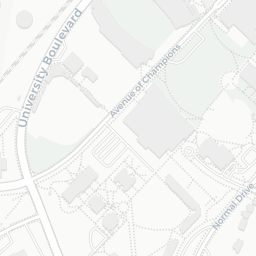Counseling and Student Affairs
What is professional counseling?
During the American Counseling Association (ACA) conference in 2010, a group of 24 delegates representing expertise in a variety of professional counseling organizations agreed upon a formal definition of counseling as follows:
"Counseling is a professional relationship
that empowers diverse individuals, families, and groups
to accomplish mental health, wellness, education, and career goals”
(counseling.org)
Professional counseling is often compared to or confused with marriage and family therapy, psychology, or social work (learn about the differences). However, four aspects underlying the profession that make counseling unique include (Remley & Herlihy, 2014):
-
- Counselors focus on the mental health or wellness of the client instead of diagnosing mental illness.
- Counselors assume that personal and emotional issues are developmental and normal;
asking for help is a healthy response rather than a sign of weakness. - Counselors believe that early prevention is better than remediating a problem after it has become more serious.
- Counselors work to empower clients and encourage them to become more independent.
Counseling is a process where people can explore issues of concern in a supportive,
non-judgmental environment. Through counseling, individuals and families can learn
how to enhance their relationships, develop unused resources more fully, and become
better at helping themselves in their everyday lives.
Specializations
There are different specializations in counseling (see the ACA divisions and CACREP specialties). The three CACREP-accredited specialized programs offered in WKU’s counseling program include school counseling; clinical mental health counseling; and marriage, couple and family counseling (learn more about the value of CACREP-accreditation).
-
- In school counseling, counselors work with children and parents in the school setting. The primary focus is on academic achievement, personal/social adjustment, and career development
- In clinical mental health counseling, counselors work with all types of clients but they often work with individuals who need help with behavioral concerns, mental illnesses, substance abuse issues, career counseling needs, communication and relationship issues, or adjustment problems.
- In marriage, couple, and family counseling, counselors work with couples and families. They are particularly knowledgeable about sex therapy, parenting, and marriage therapy.
Professional Guidelines
All professional counselors follow the professional codes of ethics and guidelines through a variety of professional counseling organizations such as:
-
- American Counseling Association
- National Board for Certified Counselors
- Specialty areas (e.g., American Association of Marriage and Family Therapists)
- State licensing boards (e.g., http://lpc.ky.gov or http://mft.ky.gov).
Additionally, the National Board of Certified Counselors and Chi Sigma Iota, the counseling profession’s international professional and academic honor society, developed an informative client rights and responsibilities brochure to assist counselors and their clients.
Remley, T. P., Herlihy, B. (2014). Ethical, legal, and professional issues in counseling. (4th ed.). Upper Saddle River: Merrill Prentice Hall. (ISBN# 9780132851817)
Department of Counseling
and Student Affairs
Gary A. Ransdell Hall 3036
1906 College Heights Blvd. #51031,
Bowling Green, KY 42101-1030
(270) 745-4953
Program Info
- Clinical Mental Health Counseling
- Marriage, Couple, and Family Counseling
- JUMP in Counseling
- Student Affairs
Department Info




















